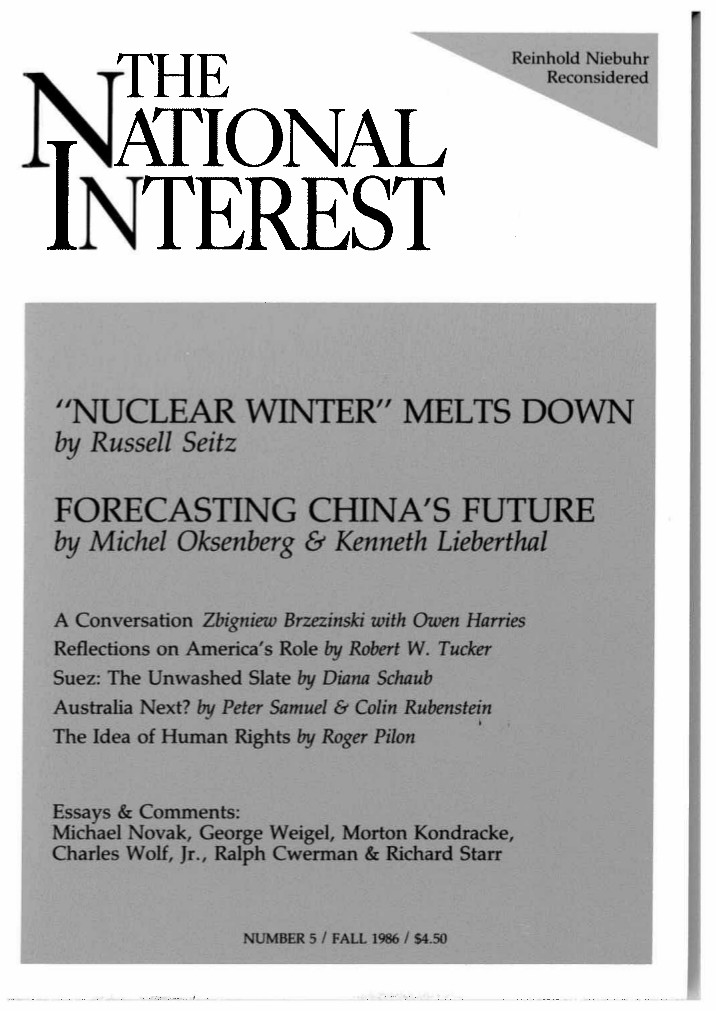

In response to the 1983 TTAP's paper "Nuclear winter: Global consequences of multiple nuclear explosions" and partially funded by the Marshall Institute, Frederick Seitz's cousin, Russell, a physicist from Harvard, published a paper in the fall issue of The National Interest, titled "In from the Cold: Nuclear Winter Melts Down". "The end of the world isn't what it used to be" is the poetic first phrase of the article, that is a full blown attack on TTAP, dismissing it as a politicization of science, advertising mere conjecture as hard fact.
"'Nuclear Winter', the theory that a nuclear exchange as small as 100 megatons, in addition to its lethal primary effects, woud usher in a life-extinguishing arctic night, has been laid to rest in the semantic potter's field alongside the "Energy Crisis" and the "Population Bomb". Cause of death: notorious lack of scientific integrity" (W. Seitz, 1986).
The George C. Marshall Institute was founded by Robert Jastrow, Frederick Seitz and William Nierenberg in 1984 to defend the Strategic Defense Initiative. One of it's first projects was to persuade PBS affiliates not to air a documentary critical of the SDI. The Institute would remind the broadcaster of the 1949 Fairness Doctrine, obligating PBS to grant equal airtime to their own report. Their strategy worked, most PBS stations decided not to broadcast the documentary.
In 1988 the Institute turned it's attention to the science behind global warming, partly funded by ExxonMobile (Lepore, 2017)
Source: https://www.researchgate.net/publication/236680781_In_from_the_cold_%27nuclear_winter%27_melts_down
Lepore, Jill. The Atomic Origins of Climate Science, How arguments about nuclear weapons shaped the debate over global warming. The New Yorker. 30-01-2017 [Accessed: 12-04-2017] http://www.newyorker.com/magazine/2017/01/30/the-atomic-origins-of-climate-science